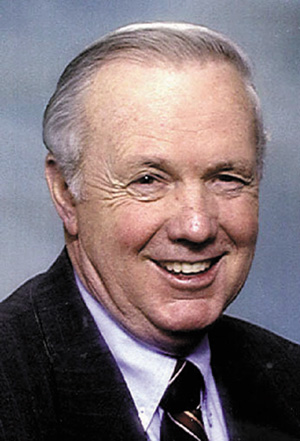No. 432 - THE BENEFITS OF A READING RECOVERY PROGRAM
No. 432
THE BENEFITS OF A READING RECOVERY PROGRAM
This past week we had a guest in our home that is a former superintendent of schools in a nearby district. During the course of our visit, we talked about education and the importance of reading. This former superintendent said, ÔIf children cannot read, it does not make any difference what subjects you attempt to teach them." Since reading is so important to a child's future, and they are the future of our nation, I have been talking about this important topic for the past several months. Back in October of this past year I had the opportunity to observe first hand the benefits of a Reading Recovery program and I wanted to share this with you.
When The Record Herald newspaper in Waynesboro, Pennsylvania made the decision to sell my book "Learning, Earning & Giving Back" to support their after school reading program, they invited me to fly to Waynesboro and speak to a community wide meeting. The meeting was held at the Otterbein Ministry Center and although we did not have as many people turn out as we had hoped, we sold a good number of books and I had the opportunity to meet many of my faithful readers, especially the Willett's, who I had corresponded with a number of times over the years.
One of the highlights of my trip was meeting Ruth Pflager, Founder & Chairman ofÊ "TV Tune-In," USA and to have dinner with her board members the night before my presentation. These are wonderful people and they served as my host while I was there. The following morning one of the board members drove me out to Hooverville Elementary School, where I was to observe a Reading Recovery program. When I arrived I was met by the Principal, Rita Sterner-Hine, who took me to the room of Ann Dedona, Reading Recovery & Teacher Leader for all the Waynesboro Public Schools. I have been hundreds of school districts over the years and I can tell you that this is a very good one.
If you are not familiar with the Reading Recovery program, here is some information that will give you some insights. Reading Recovery is a highly effective short-term intervention of one-on-one tutoring for low-achieving first graders. The intervention is most effective when it is available to all students who need it and is used as a supplement to good classroom teaching. In Reading Recovery, individual students receive a half-hour lesson each school day for 12 to 20 weeks with a specially trained Reading Recovery teacher. As soon as students can read within the average range of their class and demonstrate that they can continue to achieve, their lessons are discontinued and new students begin individual instruction.
New Zealand educator and researcher Dr. Marie M. Clay developed Reading Recovery. Dr. Clay conducted observational research in the mid-1960s that enabled her to design ways to detect children's early reading difficulties. In the mid-1970s, she developed Reading Recovery procedures with teachers and tested the program in New Zealand. Reading Recovery has spread to Australia, the United States, Canada and Great Britain. More than one million first graders have been served in the United States since Reading Recovery was introduced here in 1984.
Here are the ten most frequently asked questions about Reading Recovery. 1. Is Reading Recovery a classroom program? 2. Why does Reading Recovery serve only the lowest-achieving children? 3. Does Reading Recovery drop children who are likely to fail? 4. Does Reading Recovery raise the average achievement level of the class? 5. What is the role of phonics in Reading Recovery? 6.Does Reading Recovery change the school system?Ê7. Is Reading Recovery aligned with any specific reading or classroom approach? 8. What is the cost of Reading Recovery? 9. What is the Reading Recovery research base? 10. Is Reading Recovery a private business?
The answer to the last question, "Is Reading Recovery a private business?" is no. Reading Recovery is a not-for-profit intervention that involves collaboration among schools, districts and universities. In the United States, the name Reading Recovery has been a trademark of the Ohio State University since December 1990, when action was taken to identify sites that meet the standards and guidelines for Reading Recovery. Use of the trademark is granted annually royalty-free to sites that meet quality standards. My only purpose for sharing this with you is to make you aware of another resource that has proven effective in teaching slow learners how to read. If you would like more information, visit their Web site at www.readingrecovery.org. (Jim Davidson is a motivational speaker and syndicated columnist. You may contact him at 2 Bentley Drive, Conway, AR 72034.)
